|
I received my Ph.D. degree at City University of Hong Kong, where I was co-supervised by Prof. Jianping Wang and Prof. Xiaohua Jia. Before that, I did my master's degree at The Chinese University of Hong Kong and my bachelor's degree at Tongji University, Shanghai. My research interests lie in general AI safety and security. During my Ph.D. study, I mainly focused on the safety and security of autonomous driving. Later on, I broadened my area into AI explainability and AI ethics, especially the fairness aspect. Now, I am very interested in AI safety in generative AI. [ Email / Google Scholar / Github ] |

|
|
|
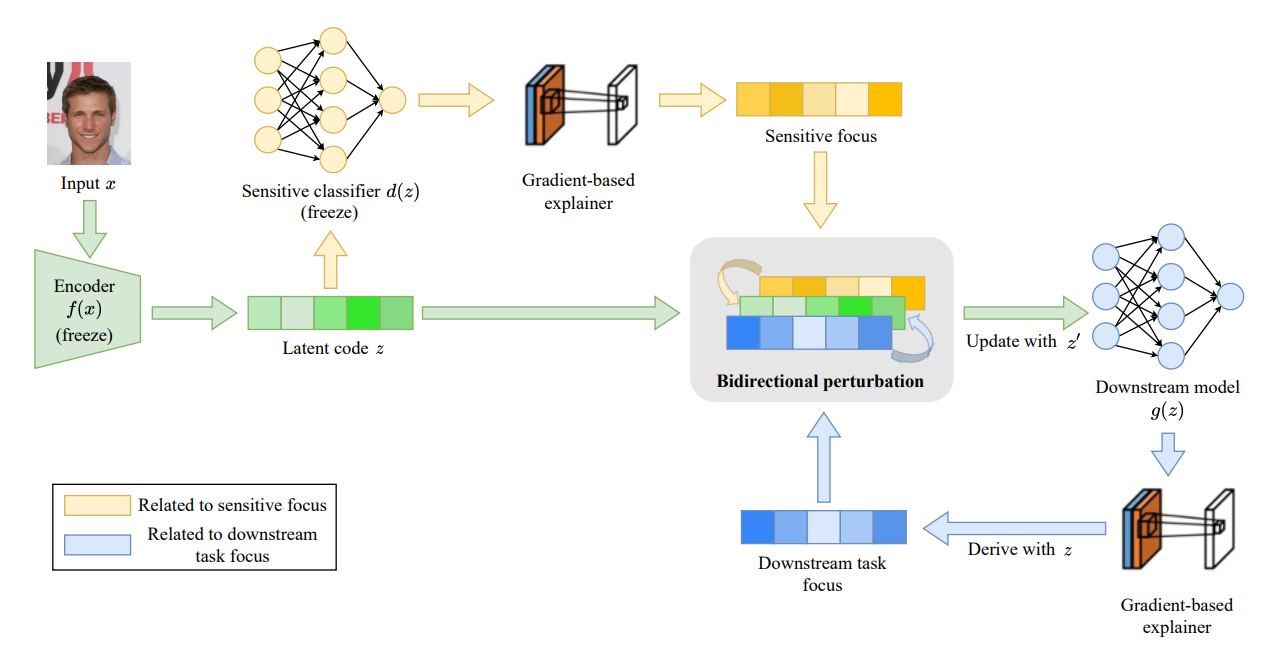
|
Jindi Zhang, Luning Wang, Dan Su, Yongxiang Huang, Caleb Chen Cao, Lei Chen AIES, 2023 Paper / arXiv / Slides / Github We are targeting Fairness problems, proposing a model debiasing framework with representation learning, gradient-base explanations, and perturbation, achieving state-of-the-art fairness-accuracy trade-off. |
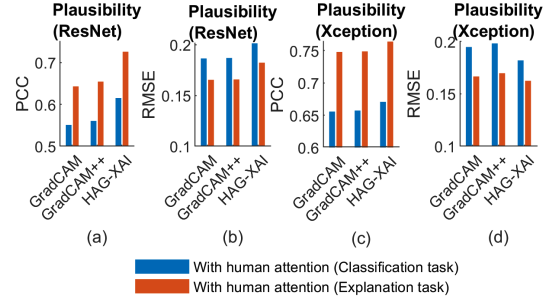
|
Guoyang Liu, Jindi Zhang, Antoni B. Chan, Janet H. Hsiao In submission to IJCV, 2023 arXiv After finding that human attention information (eye movement data) has better plausibility and faithfulness in explaining object detectors than the XAI methods adapted from the task of image classification, we developed Human Attention-Guided XAI (HAG-XAI) to learn from human attention to enhance explanation plausibility by using trainable activation functions and smoothing kernels to maximize XAI saliency map’s similarity to human attention maps. |

|
Yi Yang, Yueyuan Zheng, Didan Deng, Jindi Zhang, Yongxiang Huang, Yumeng Yang, Janet H Hsiao, Caleb Chen Cao Proceedings of the AAAI Conference on Human Computation and Crowdsourcing, 2022 [Paper] Proposing a human-based benchmark dataset for evaluating saliency-based XAI methods and a model capable of imitating human and generating saliency maps. |
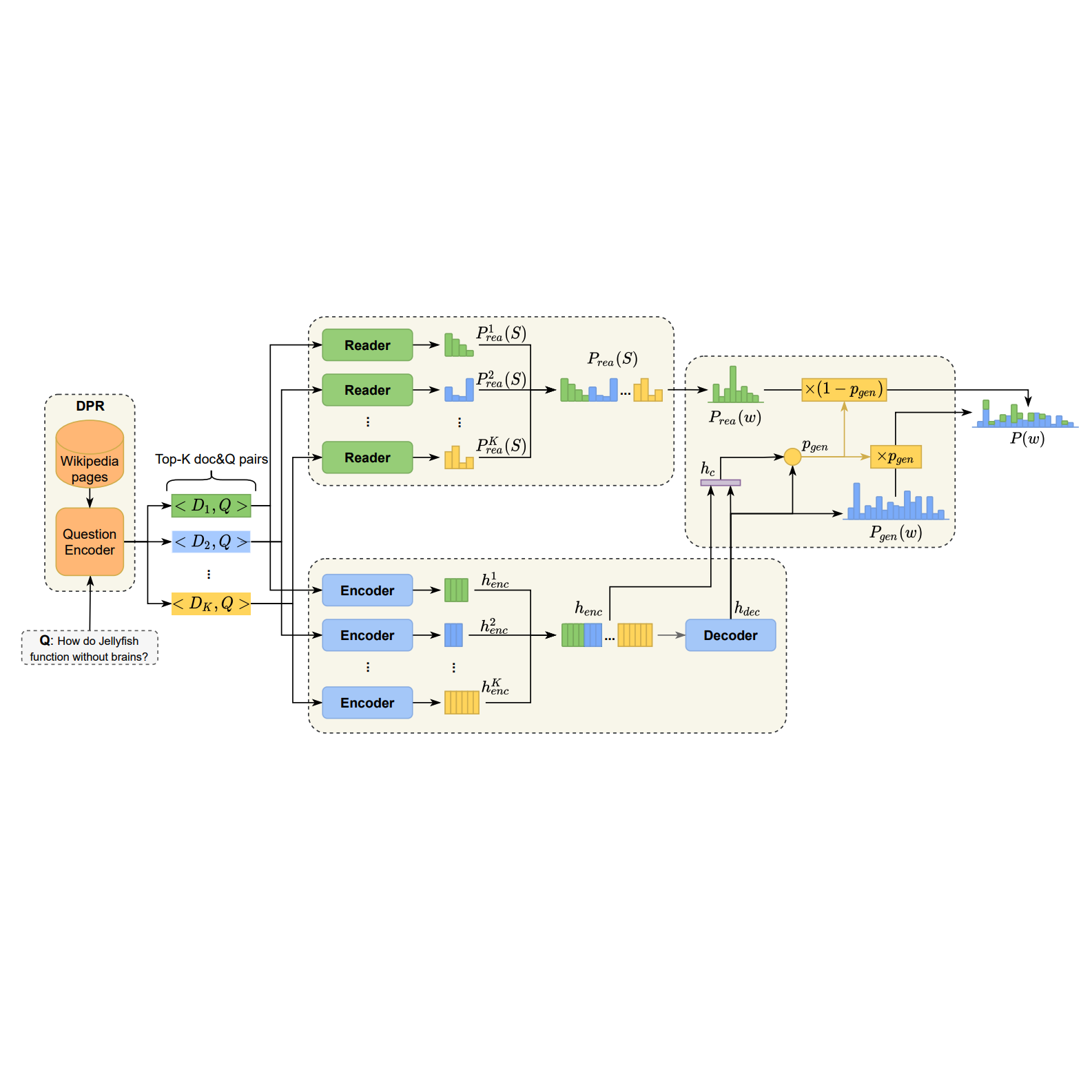
|
Dan Su, Xiaoguang Li, Jindi Zhang, Lifeng Shang, Xin Jiang, Qun Liu, Pascale Fung ACL Findings, 2022 [Paper] Proposing a new end-to-end framework that jointly models answer generation and machine reading. The key idea is to augment the generation model with fine-grained, answer-related salient information which can be viewed as an emphasis on faithful facts. |

|
Jindi Zhang City University of Hong Kong, 2022 [Paper] My PhD thesis on sensor data validation with respect to the driving safety of autonomous vehicles. |
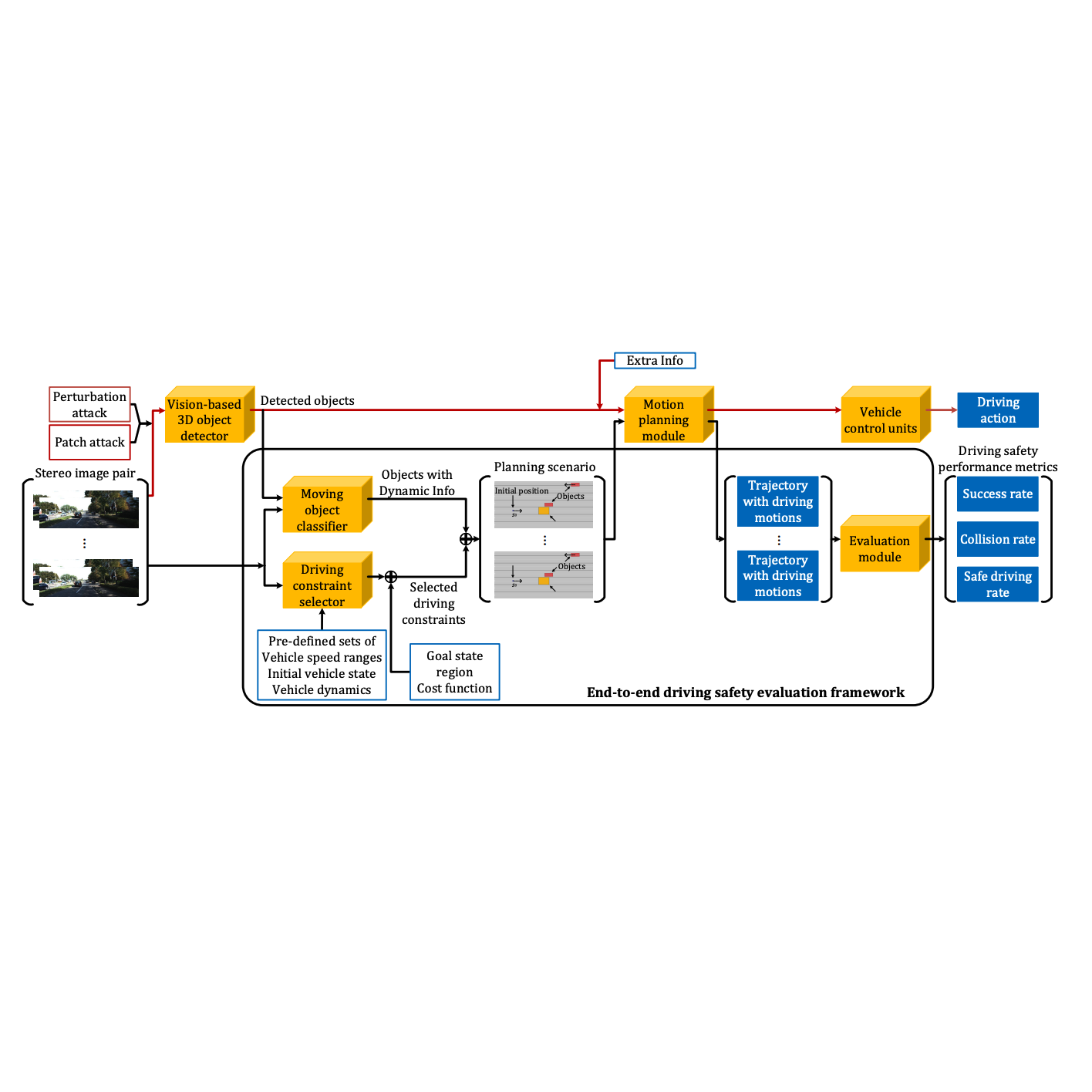
|
Jindi Zhang, Yang Lou, Jianping Wang, Kui Wu, Kejie Lu, Xiaohua Jia IEEE Internet of Things Journal, 2022 Paper / arXiv / Github Investigating the impact of two primary types of adversarial attacks, perturbation attacks and patch attacks, on the driving safety of vision-based autonomous vehicles. |
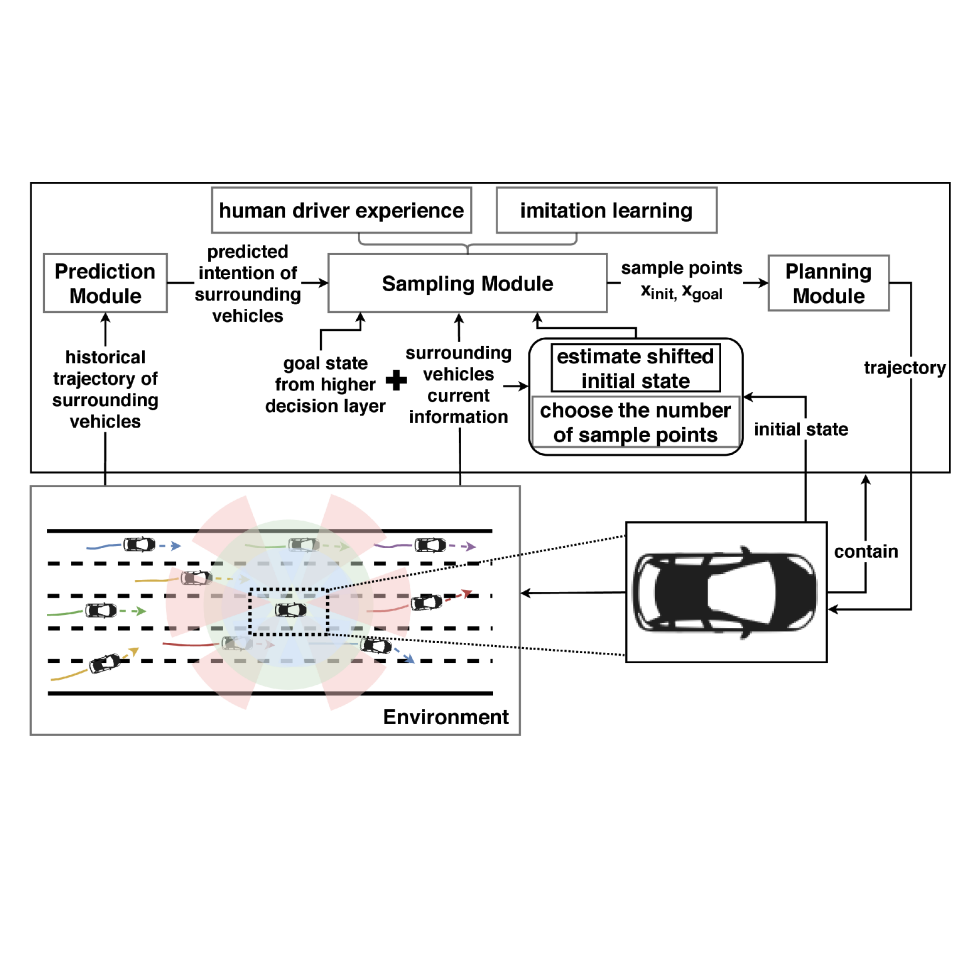
|
Yifan Zhang, Jinghuai Zhang, Jindi Zhang, Jianping Wang, Kejie Lu, Jeff Hong ACM Transactions on Intelligent Systems and Technology, 2022 [Paper] Developing a new model to sample “important” points for sampling-based motion planning (SBMP) by predicting the intention of surrounding vehicles and learning the distribution of human drivers’ trajectory and studying the relationship between the number of sample points and the environment. |
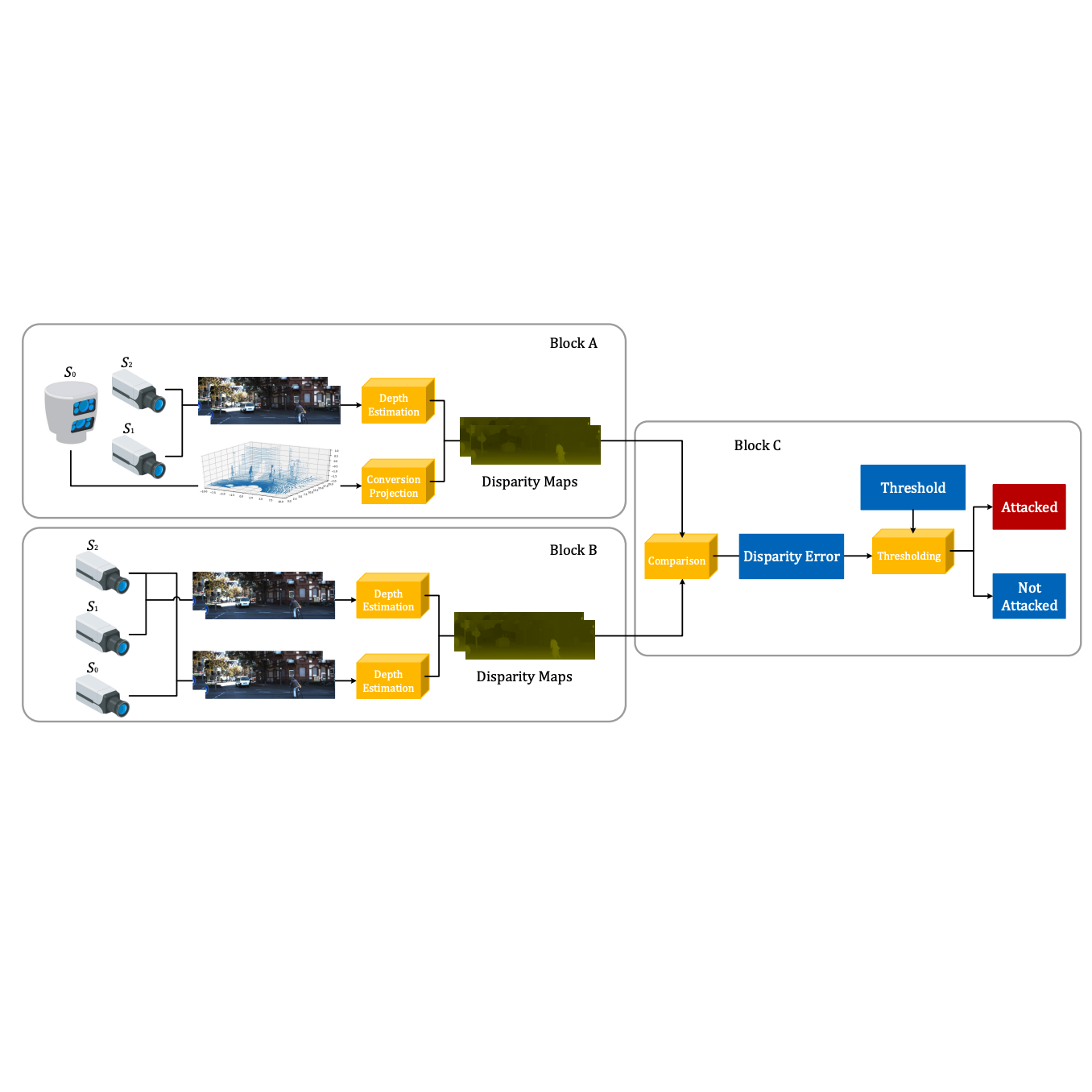
|
Jindi Zhang, Yifan Zhang, Kejie Lu, Jianping Wang, Kui Wu, Xiaohua Jia, Bin Liu IEEE Internet of Things Journal, 2021 [Paper] Proposing a framework to detect and identify optical attacks against cameras and LiDARs. main idea is to use data from three sensors to obtain two versions of depth maps (i.e., disparity) and detect attacks by analyzing the distribution of disparity errors. |

|
Yifan Zhang, Jinghuai Zhang, Jindi Zhang, Jianping Wang, Kejie Lu, Jeff Hong AAAI, 2020 [Paper] Developing a automatic labeling scheme and a 2-Stage prediction model to improve the accuracy in predicting the intention of surrounding vehicles and developing an imitation learning scheme to generate sample points based on the experience of human drivers. |
|
This webpage is based on a fork of Jon Barron's personal webpage. |